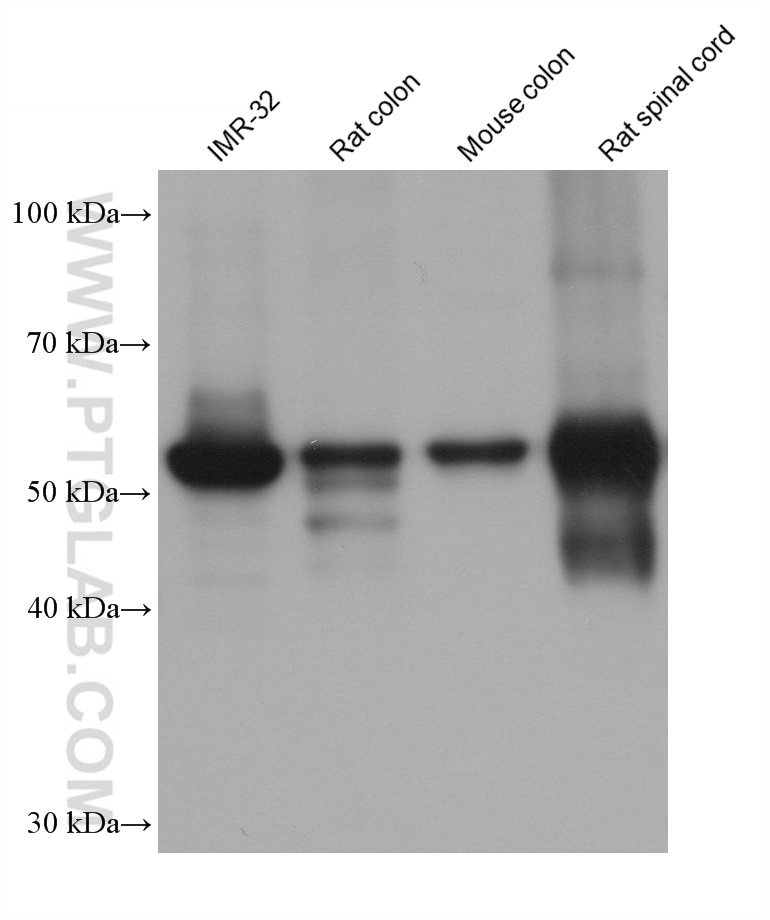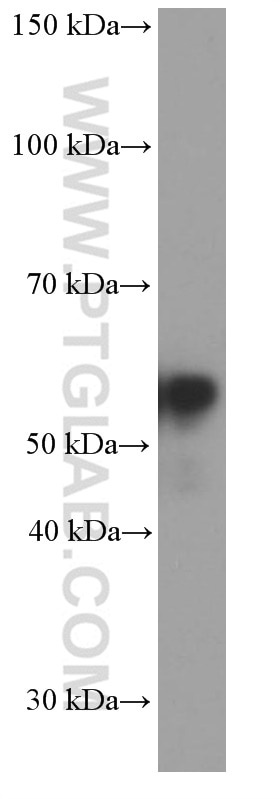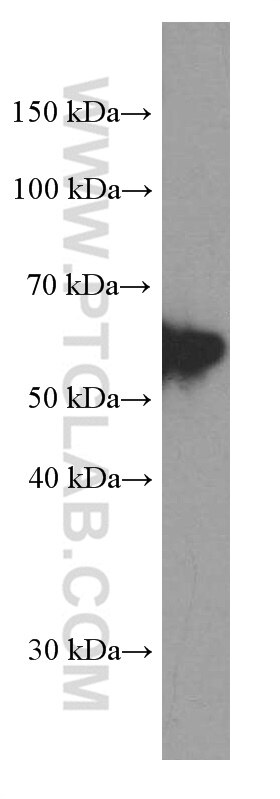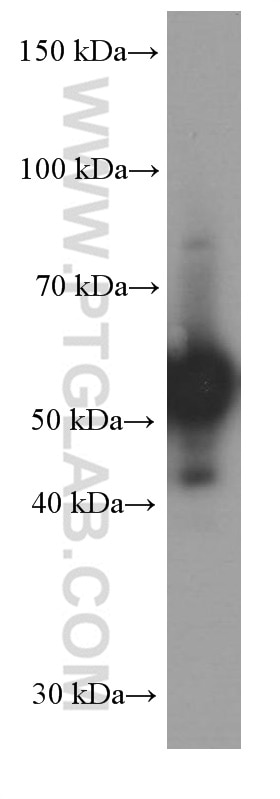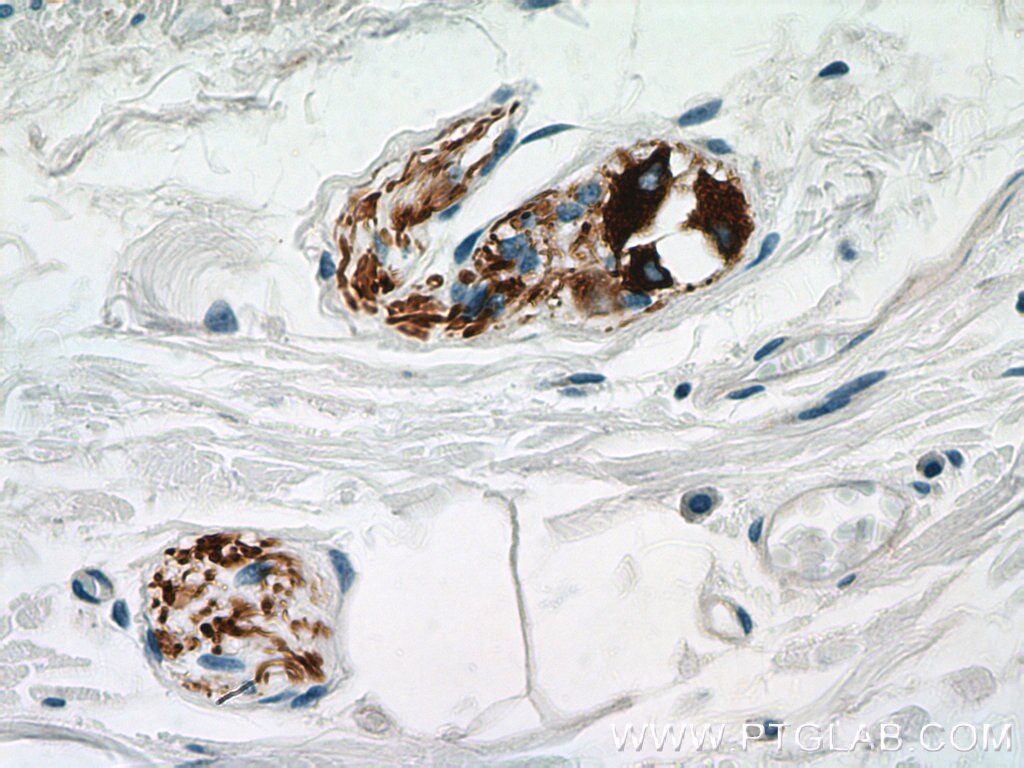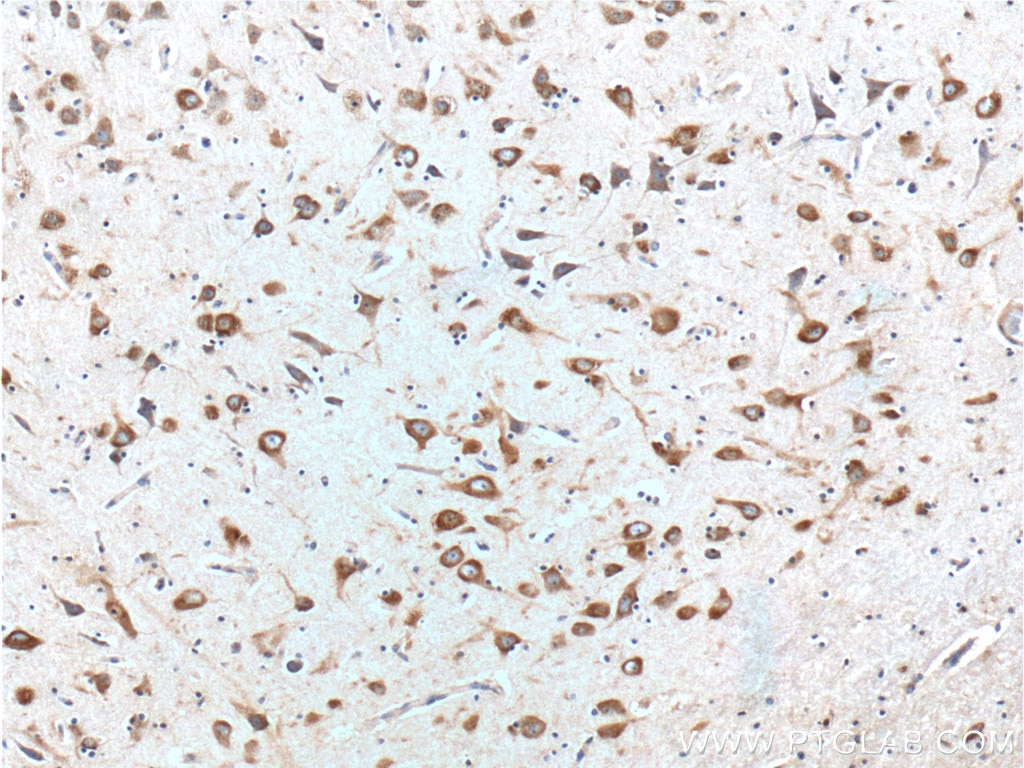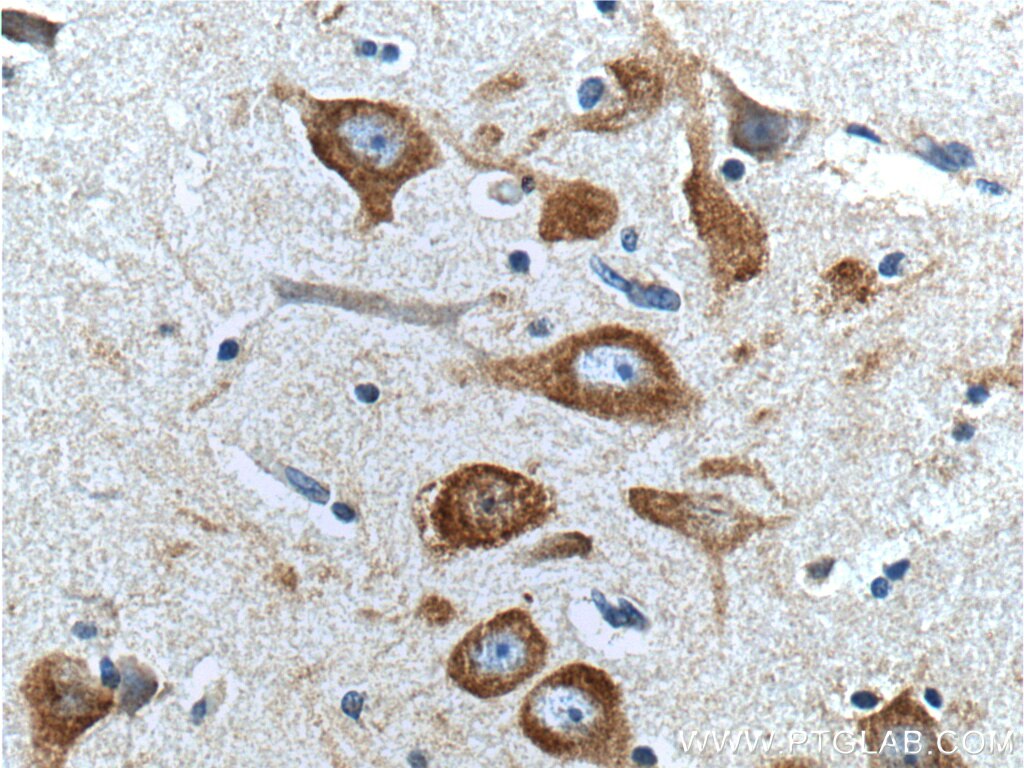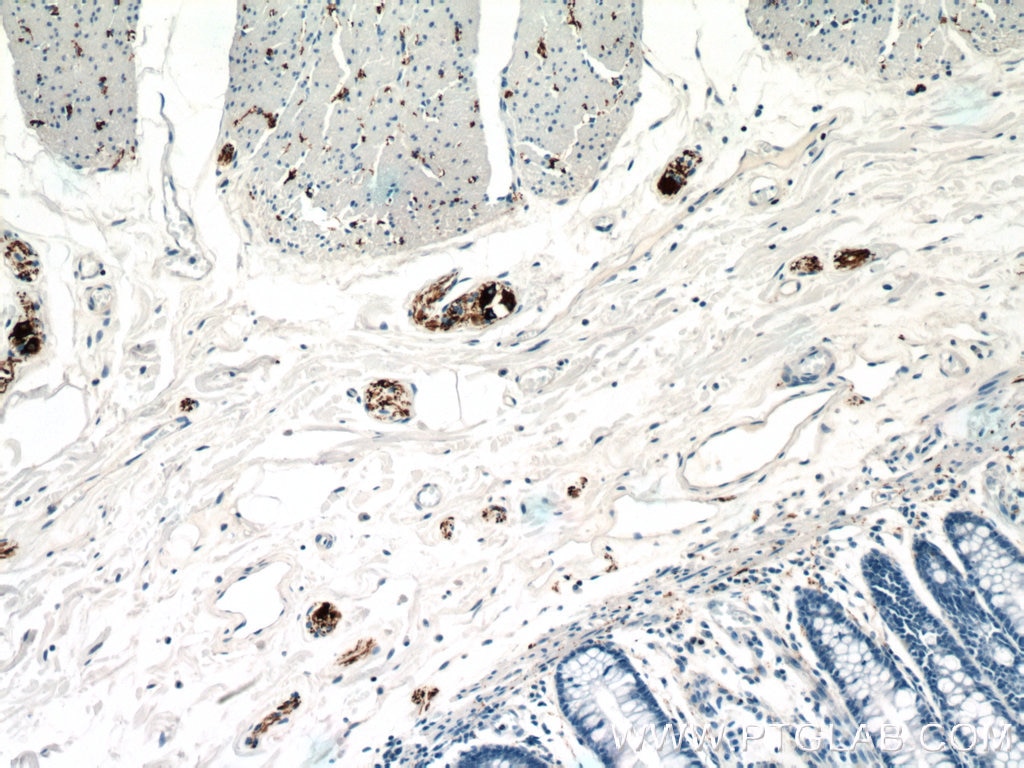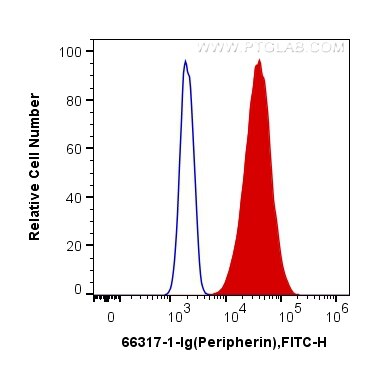Validation Data Gallery
Tested Applications
| Positive WB detected in | IMR-32 cells, human colon tissue, rat brain tissue, rat colon tissue, mouse colon tissue, rat spinal cord tissue |
| Positive IHC detected in | human brain tissue, human colon tissue Note: suggested antigen retrieval with TE buffer pH 9.0; (*) Alternatively, antigen retrieval may be performed with citrate buffer pH 6.0 |
| Positive FC (Intra) detected in | PC-12 cells |
Recommended dilution
| Application | Dilution |
|---|---|
| Western Blot (WB) | WB : 1:5000-1:50000 |
| Immunohistochemistry (IHC) | IHC : 1:20-1:200 |
| Flow Cytometry (FC) (INTRA) | FC (INTRA) : 0.40 ug per 10^6 cells in a 100 µl suspension |
| It is recommended that this reagent should be titrated in each testing system to obtain optimal results. | |
| Sample-dependent, Check data in validation data gallery. | |
Product Information
66317-1-Ig targets Peripherin in WB, IHC, FC (Intra), ELISA applications and shows reactivity with human, rat, pig samples.
| Tested Reactivity | human, rat, pig |
| Host / Isotype | Mouse / IgG2b |
| Class | Monoclonal |
| Type | Antibody |
| Immunogen | Peripherin fusion protein Ag11116 相同性解析による交差性が予測される生物種 |
| Full Name | peripherin |
| Calculated molecular weight | 470 aa, 54 kDa |
| Observed molecular weight | 50-54 kDa |
| GenBank accession number | BC032703 |
| Gene Symbol | Peripherin |
| Gene ID (NCBI) | 5630 |
| RRID | AB_2881698 |
| Conjugate | Unconjugated |
| Form | Liquid |
| Purification Method | Protein A purification |
| UNIPROT ID | P41219 |
| Storage Buffer | PBS with 0.02% sodium azide and 50% glycerol , pH 7.3 |
| Storage Conditions | Store at -20°C. Stable for one year after shipment. Aliquoting is unnecessary for -20oC storage. |
Protocols
| Product Specific Protocols | |
|---|---|
| WB protocol for Peripherin antibody 66317-1-Ig | Download protocol |
| IHC protocol for Peripherin antibody 66317-1-Ig | Download protocol |
| Standard Protocols | |
|---|---|
| Click here to view our Standard Protocols |
